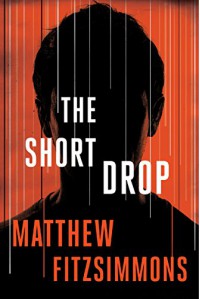Currently reading
Rules of Vengeance
Liberation Day : A Nick Stone Mission
Boy Nobody
El caballero de la armadura oxidada
Land of the Infidel
Limitless
Manual of Psychomagic: The Practice of Shamanic Psychotherapy
Heart Duel
Noble Intentions: Season Two
Catch Me If You Can: The True Story Of A Real Fake
The Short Drop
 Q:
Q:His craft required mastery of many skills, but above all else it demanded an appreciation of time. Tinsley had made a lifetime study of the way time affected people. The way it toyed with their good judgment and perspective. Made them impatient or rash. Made them take irrational risks. Time was the great leveler, and neither money nor power held sway over its relentless march. That was precisely what made Tinsley so good at his work. Most people didn’t understand that—what really went into being a sniper. The shot wasn’t the hard part. The shot was ten thousand hours of practice, tens of thousands of rounds, and an encyclopedic knowledge of the environment’s effect on ballistics. No, the shot was the easy part. It simply required time, and the will to spend it. The hard part was the waiting.
Time did not affect Fred Tinsley as it did most people. Most people were overawed by time. They allowed time to bully them, fearing that it was passing too fast or too slowly, sometimes both simultaneously. But not Tinsley. He was indifferent to the passage of time, and it flowed around him effortlessly.
Inside his arid, primeval brain—and Tinsley thought of himself as almost prehistoric, something unspoiled by the softening influence of progress—he could look out at the world, blink, and in the time it took for his eyes to reopen, weeks could pass. It made him immune to boredom, to doubt or need; the privations that drove ordinary men mad did not concern him.
(c)












